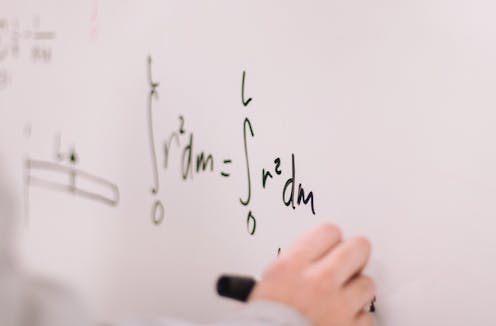Only 1.5% of students swapped fields due to the 'Job-ready Graduates' fee changes
- Written by Jan Kabatek, Research Fellow, Melbourne Institute of Applied Economic and Social Research, The University of Melbourne

In January 2021, the Morrison government changed the way university fees are set with the Job-ready Graduates scheme[1].
The idea[2] was to steer students into courses that would lead to “the jobs of the future”. So the scheme made some fields (such as history and journalism) more expensive and some (such as nursing, teaching, computer programming and engineering) less expensive.
Fees rose by as much as 117% for some fields and dropped by as much as 59% for others. The government believed this would affect student choices.
Education experts have been very critical[3] of scheme. They argue it is not only unfair, it would not work. But to date there have been few studies looking at the evidence.
Our research[4] with our former student Maxwell Yong shows the impact of the Job-ready Graduates scheme was modest at best.
Our research
Our study looked at student’s preferences when applying for degrees and final enrolments (what they ended up studying).
We used data from the Universities Admissions Centre, which handles applications for degrees in New South Wales and the Australian Capital Territory.
We looked at more than 725,000 undergraduates applying between 2014 and 2022. This means we had seven years of data before the Job-ready Graduates scheme was introduced, and two years afterwards.
Using various statistical models, we analysed whether students increased their preferences for fields that became cheaper and reduced preferences for fields that became more expensive.
Our findings
Overall we found the Job-ready Graduates scheme only had a minor impact on course choices.
Just 1.52% of university applicants in our study chose fields they would have not chosen had it not been for the scheme, moving from humanities, arts, law and business to STEM (science, technology, engineering and maths) and teaching.
Maths and statistics had the largest drop of student fees (59%) of any field. But only one out of every 2,000 students responded by changing their preference to maths.
Communications, journalism and media studies had the largest increase in fees (117%). But only one out of every 350 students chose not to preference these fields in response.
This is perhaps not surprising. Under HECS-HELP[5], students do not have to pay university fees up-front. Many students also choose courses based on their passions[6] and interests rather than the amount of the deferred fees.
Read more: Our research shows how students can miss out on their preferred uni degree – but there's a simple fix[7]
Big repercussions
While we found only modest responses to these large fee changes, this does not mean students are not affected. Because of the reforms, many will accumulate much larger HECS-HELP debts.
For a three-year bachelors degree in journalism, the debt grows from around A$20,000 to A$43,500. For a mathematics degree, the debt falls from around $28,600 to $11,850. The new difference in debts ($31,650) is more than triple the old difference ($8,600).
Higher debts mean more years of making repayments. Longer repayment times may mean delayed home purchases and starting families.
These reforms overturned 25 years of university fees reflecting the earning prospects of graduates[8]. Those likely to earn more post-graduation (lawyers, doctors, financiers) paid a bit more. Those likely to earn less (arts, nursing, teaching) paid a bit less.
The Universities Accord
The Albanese government is in the middle of a broad review[9] of the higher education system, including university fees. The Universities Accord review panel is due to hand in a final report in December.
An interim report[10] was highly critical of the Job-ready Graduates scheme, saying it risks “causing long-term and entrenched damage to Australian higher education”.
As a new model is considered, it is important policymakers understand increasing HECS-HELP debts for some and reducing them for others is not going to prompt students into areas the government deems a “priority”.
Read more: The Universities Accord should scrap Job-ready Graduates and create a new multi-rate system for student fees[11]
References
- ^ Job-ready Graduates scheme (www.education.gov.au)
- ^ idea (www.education.gov.au)
- ^ very critical (theconversation.com)
- ^ Our research (melbourneinstitute.unimelb.edu.au)
- ^ HECS-HELP (www.studyassist.gov.au)
- ^ based on their passions (www.emerald.com)
- ^ Our research shows how students can miss out on their preferred uni degree – but there's a simple fix (theconversation.com)
- ^ reflecting the earning prospects of graduates (theconversation.com)
- ^ broad review (www.education.gov.au)
- ^ interim report (theconversation.com)
- ^ The Universities Accord should scrap Job-ready Graduates and create a new multi-rate system for student fees (theconversation.com)

















